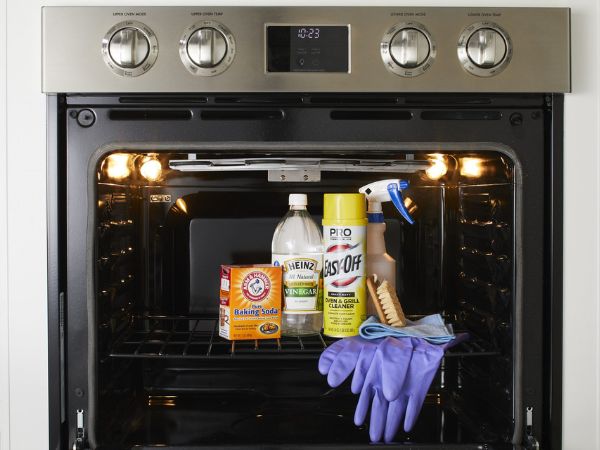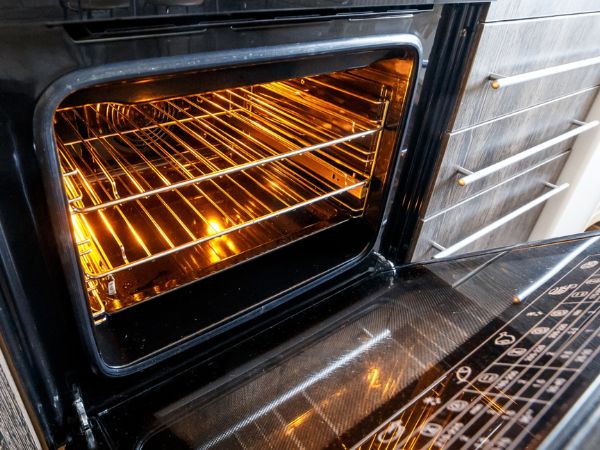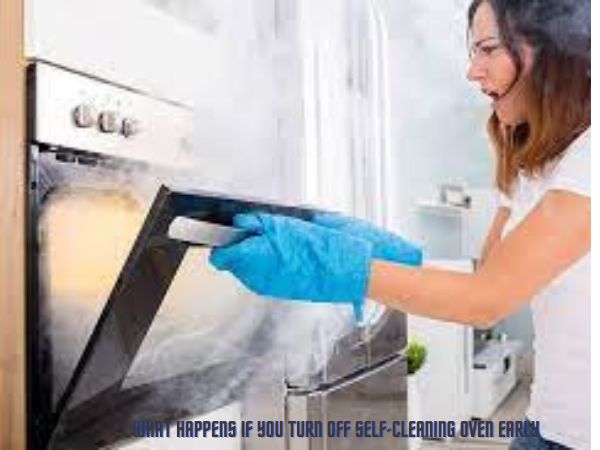Cleaning the oven is a chore that many people dread. Luckily, self-cleaning ovens are becoming more common and make tasks much more manageable. However, if you’ve never used a self-cleaning oven before, you may be wondering if you can turn it off early. In this article, we will explore the topic of What Happens If You Turn Off Self-Cleaning Oven Early? And answer some frequently asked questions.
What Is a Self-Cleaning Oven?
A self-cleaning oven is an appliance that uses high heat to burn off any food or grease that has accumulated inside the oven. This process is designed to make cleaning your oven much more manageable and eliminate the need for harsh chemicals or manual scrubbing.
When Should You Use a Self-Cleaning Oven?
You should use a self-cleaning oven when there is a significant buildup of food or grease inside the oven. Typically, self-cleaning ovens are only used a few times a year, as they use a lot of energy and can emit unpleasant odors.
How to Prepare Your Oven for Self-Cleaning
Before starting the self-cleaning cycle, it’s essential to remove any large debris or food particles from the oven. You should also remove any oven racks or accessories that are not self-cleaning. Additionally, you should wipe down the oven door and surrounding areas with a damp cloth to prevent any smoke or residue buildup.

Can You Turn Off the Self-Cleaning Oven Early?
It is not recommended to turn off a self-cleaning oven early. Most self-cleaning ovens have a safety feature that locks the oven door during the cleaning cycle. This lock ensures that the high temperatures do not pose a safety risk to you or your family. Turning off the oven early could cause the door to remain locked and prevent you from using the oven.

When should I turn off the self-cleaning oven?
You should not turn off the self-cleaning oven until the cycle is complete. The high temperatures used during the cleaning cycle are necessary to burn off any food or grease buildup inside the oven.
What happens if you open an oven during self-clean?
Opening the oven during the self-cleaning cycle can cause the safety lock to engage, and the cycle may not be complete. Additionally, opening the oven can release smoke and fumes into your kitchen, which can be harmful to inhale.

Why Is Oven Door Locked After Self-Cleaning?
The oven door is locked after the self-cleaning cycle to prevent any accidental burns from the high temperatures used during the cleaning process. The door will remain locked until the oven has cooled to a safe temperature.
Are Self-Cleaning Ovens Safe?
Self-cleaning ovens are safe when used correctly. However, they use high temperatures and can emit fumes, so it’s essential to follow the manufacturer’s instructions carefully and avoid using the oven during the cleaning cycle.
Do Self-Cleaning Ovens Emit Carbon Monoxide?
Self-cleaning ovens do not emit carbon monoxide during the cleaning cycle. However, they can emit fumes and smoke, so it’s essential to keep your kitchen well-ventilated during the cleaning process.

Can You Run a Self-Cleaning Cycle Overnight?
It is not recommended to run a self-cleaning cycle overnight. The high temperatures used during the cleaning process can cause the oven to emit fumes and smoke, which can be harmful to inhale. It’s best to run the cycle during the day when you can ventilate your kitchen adequately.
Conclusion
Self-cleaning ovens are a convenient way to clean your oven without the need for harsh chemicals or manual scrubbing. While it may be tempting to turn off the cleaning cycle early, it’s essential to let the cycle complete to ensure that the oven is cleaned thoroughly and the safety lock disengages. By following the manufacturer’s instructions carefully and taking appropriate safety precautions
FAQs of What Happens If You Turn Off Self-Cleaning Oven Early
Can I turn off the self-cleaning oven early if I start to smell smoke or notice an issue?
It is not recommended to turn off the self-cleaning oven early, even if you smell smoke or notice an issue. You should immediately turn off the oven, open windows for ventilation, and contact a professional for assistance.
Can I use my self-cleaning oven more than once a year?
While it’s possible to use a self-cleaning oven more than once a year, it’s not recommended. Self-cleaning ovens use a lot of energy and emit unpleasant odors, so it’s best to limit their use to a few times a year.
How long does a self-cleaning cycle take?
The length of a self-cleaning cycle can vary depending on the oven’s model and manufacturer. However, most self-cleaning cycles take between 2 to 4 hours.
Can I clean the oven racks in a self-cleaning oven?
Most oven racks are not designed to withstand the high temperatures used during a self-cleaning cycle. It’s best to remove the oven racks before starting the cleaning cycle and clean them separately.
How should I ventilate my kitchen during a self-cleaning cycle?
It’s essential to ventilate your kitchen during a self-cleaning cycle to prevent smoke and fumes from building up. You can open windows and doors or use a fan to circulate air. Additionally, it’s recommended to turn off any nearby smoke detectors temporarily to prevent false alarms.




